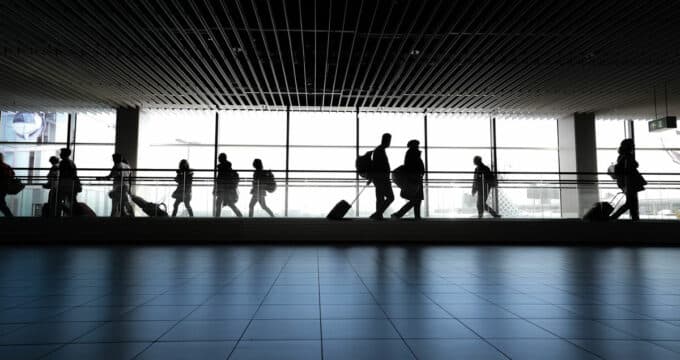Hong Kong remains competitive despite tuition hike
Today ICEF Monitor looks at Hong Kong, where the government says inflation and monetary exchange has forced a rise in fees for international students. As the country adjusts to other changes in its education sector, questions remain as to what the long-range effects will be upon its status as a regional education hub, as well as future opportunities for student mobility and recruitment.
Higher costs for international students
Eight government-funded universities in Hong Kong have raised tuition fees by as much as 20% for international students, affecting approximately 10,000 undergraduates. The change, according to government sources, comes about due to general inflation as well as the strength of China’s currency (the Renminbi) against the Hong Kong dollar. It is the first time they have raised fees since 2010. University World News records the details as follows:
- Chinese University, the University of Science and Technology, and City University: a 20% increase to HK $120,000 (US $15,500) per year;
- Hong Kong Institute of Education: a 17.6% rise to US $14,169;
- University of Hong Kong: a 13.5% rise to HK $135,000 (US $17,390);
- Polytechnic University, Lingnan University, and Baptist University: 10% increase.
The eight universities which have boosted fees have also increased the levels of scholarships accordingly. The amount of the highest admission scholarship provided in each university is enough to cover full tuition and average costs of living. Approximately 77% of foreign students in Hong Kong are from China, and despite the fee hike, educational officials have stated that they believe Hong Kong will remain attractive to mainland students for four main reasons: the ‘Western-style’ education, high rankings of its universities, generous scholarships, and rising household income of mainland families. In fact, mobility from China to Hong Kong could increase thanks to a push on the mainland to recognise foreign degrees taught in Hong Kong. This would also be good news for UK universities, considering that British institutions offer a high percentage of programmes in Hong Kong.
Hong Kong's fiscal outlook
The Hong Kong government has allocated additional financial resources to support the restructuring of the education sector, and the 2013/14 budget outlines various proposals for increased spending such as more scholarship funds for local students to study in overseas universities as well as enhanced vocational training, particularly in the local shipping and aviation industries.
But fiscal issues remain for Hong Kong’s public universities. Even after the tuition fee increases, local universities assert that it's not enough to cover the costs of educating each student, and that the universities need to subsidise non-local students from non-government funds.
Under the existing policy, up to 20% of students in University Grants Committee (UGC) funded institutions can be non-locals, and only 4% of them are allowed to be subsidised by the government; the rest have to be self-funded. The average cost of educating an undergraduate student enrolled in a government-funded programme was HK $233,000 (US $30,000) last academic year, according to the UGC. Chouk Yin, external liaison manager of mainland and external affairs at City University in Hong Kong, told the South China Morning Post, “The purpose of admitting non-local students is to make our university more international; making money is not the purpose. Admitting non-local students can also promote communications between local students and students from other cultures. It can broaden the scope of local students.” Naturally foreign students add to Hong Kong's appeal in the international education landscape, but their financial contribution cannot be ignored or underestimated, particularly as financial challenges loom and the country deals with hyper competition for university places in the short term.
Local students face competitive pressures
Hong Kong has made dramatic changes in recent years in its effort to become a regional education hub, as we highlighted in our 2012 article "Foreign applications to Hong Kong universities up sharply this year." Changes include:
- scholarship funding for foreign students has increased;
- quota limits on international students have doubled (from 10% to 20%);
- visa regulations have been relaxed (foreigners can now undertake internships, part-time on-campus jobs and summer jobs during their programme of study, and they can stay on in Hong Kong to work for a year after graduation);
- the degree system shifted from three years to four years;
- the pre-collegiate school system has been reduced from 13 to 12 years.
The system changes have created a double cohort of students completing the old three-year degrees and the new four-year degree under a new university system that began in September 2012. And when combined, all of these market reforms have exacerbated the heavy competition Hong Kong residents face for limited university places, especially in popular subjects such as the sciences.
For the 2013/14 academic year, there will be 22,000 available places at public and private universities for 27,000 secondary school pupils likely to meet the minimum entry requirements.
Hong Kong’s competitive pressures - coupled with parental anxiety and ambition - are so severe they have helped turn average tutors into millionaire celebrities who advertise on glossy posters and appear regularly on television. Sources claim that a staggering 72% of final-year school students in Hong Kong now use private tutors. This is clearly helping to bolster the global private tutoring market, already a multi-billion dollar industry, which is expected to reach US $102.8 billion by the year 2018.
Government reforms address challenges
The government has made some moves to address space problems in its universities:
- First-year-first-degree places funded by the UGC have increased to 15,000 per year;
- The number of senior year undergraduate intake places is expected to double to 4,000 per year by 2014/15;
- By the 2014/15 academic year, annual recurrent grants for UGC-funded institutions will increase by HK $3 billion to about HK $14 billion.
Furthermore, the Education Bureau has published a set of guidelines aimed at improving the governance of private tertiary institutions, some of which have been accused of over-enrolment. The bureau has not set a cap, but they have said that colleges will have to seek approval for their enrolment ceilings. But the Hong Kong Education Bureau warns that its tertiary sector could look drastically different by 2016: approximately 23,200 university places for 22,000 students expected to meet entry requirements. If true, this could require consolidation of the very universities that are hurrying to expand today.
Alternatively, it gives Hong Kong-based institutions even more of a reason to boost enrolment figures from foreign students in the long term. In addition, it opens up future pathways for associate degree students to upgrade to full bachelor degrees.
So, as Hong Kong faces a surge of students now, it paves the way for expanded enrolment in the years ahead.
Hong Kong’s international reach
Students who still find themselves on the losing end of the high stakes competition for local spots will seek placements overseas, as they have for years. In 2012, the UK proved to be the number one destination for Hong Kong students (25%), followed by mainland China (22%), Australia (14%), the US (13%), and Taiwan (13%). China will likely remain a popular destination, also owing to last year's Ministry of Education's announcement that 70 universities on the mainland would be allowed to admit foreign students (including those from Hong Kong) even if they had not taken part in the competitive national entrance examination, the gaokao. A recent example of Hong Kong mobility outreach is the bilateral working holiday scheme agreement recently set up with France. Under the agreement, which comes into effect 1 July 2013, young people in Hong Kong and France can gain work experience while travelling. It’s the eighth bilateral working holiday scheme Hong Kong has set up with other countries, and so far 30,000 have taken advantage of the programme. In an even wider international linkage, Hong Kong is part of a common credit transfer scheme that could be adopted by all higher education institutions in Vietnam, Cambodia, Laos, Myanmar, Thailand, China, Japan and Korea. The programme will be piloted with selected universities and courses from the beginning of the 2013/14 academic year for 18 months before an agreed credit transfer system would be expanded to the entire region. The credit transfer framework could be a boon for Hong Kong because relatively few non-Chinese Asians attend school there. Of 56,921 full-time undergraduates on UGC-funded programmes in 2011-12, only 1,057 came from non-Chinese Asia, while 274 came from the rest of the world. Furthermore, Hong Kong still has work to do for its non-native residents. A 2012 Equal Opportunities Commission survey showed that students from South Asian countries, such as Pakistan and Nepal, accounted for 3.2% of primary school pupils, but only 1.1% of senior secondary students and 0.59% of tertiary education students. The United Nations Human Rights Committee cited the percentages when it urged the Hong Kong government to intensify efforts to facilitate the integration of ethnic minorities into public school education. Some problems stem from the difficulty immigrants face trying to learn Chinese when it isn’t their birth or household language, however other factors may be involved, such as teacher training, and the government has been asked to report back to the UN within one year on the matter. The Language Fund, which was set up in 1994, provides financial support for projects and activities promoting bi-literacy and tri-lingualism, including programmes to support non-Chinese speaking students in learning Chinese. The government has proposed to inject HK $5 billion into the Fund to facilitate its longer term planning.
International students can fill the gap
As Hong Kong deals with the challenges of absorbing the double cohort of first-year university students into its education system, it is faced with an imbalance of supply and demand. Once the glut of students has moved through the education system (i.e., by 2016), the pendulum will swing the other way, leaving Hong Kong with an overabundance of seats. Thus, these next few years will be critical for the nation to position itself as an attractive destination for international students who will not only fill the future gap of extra capacity seats, but also provide much-needed funds into the education system.














